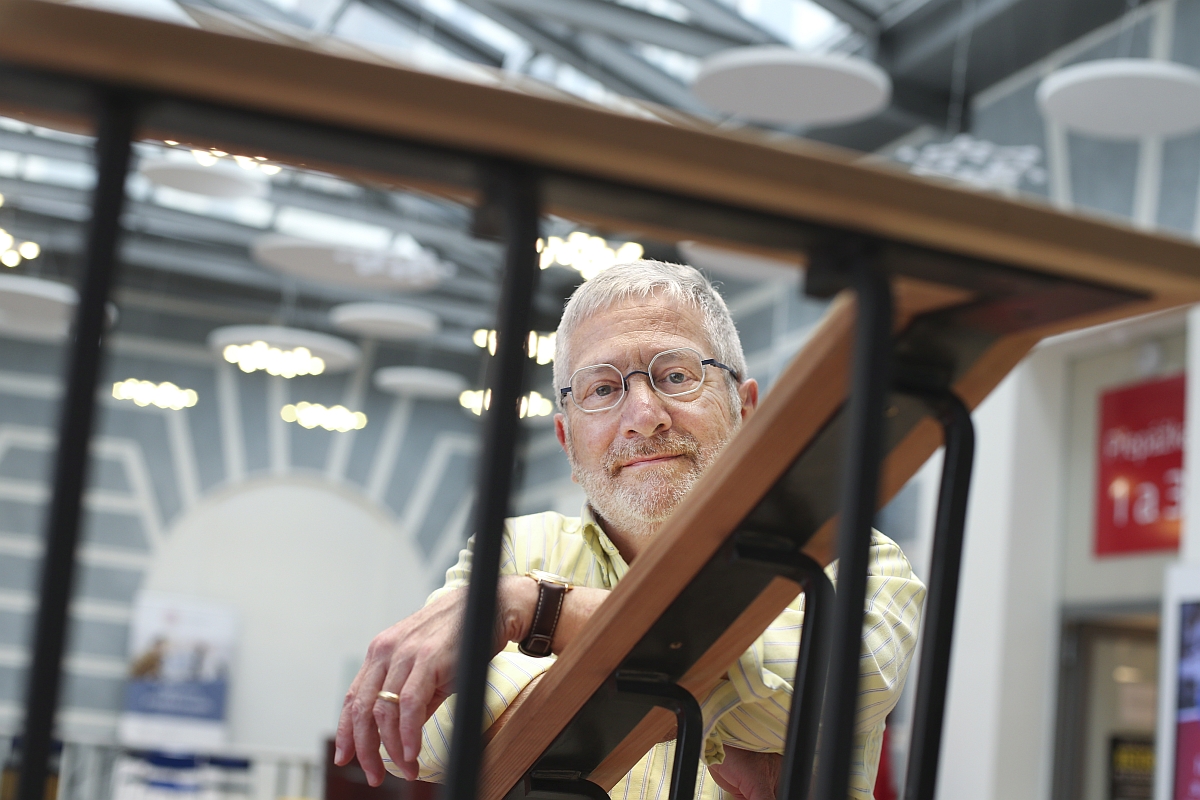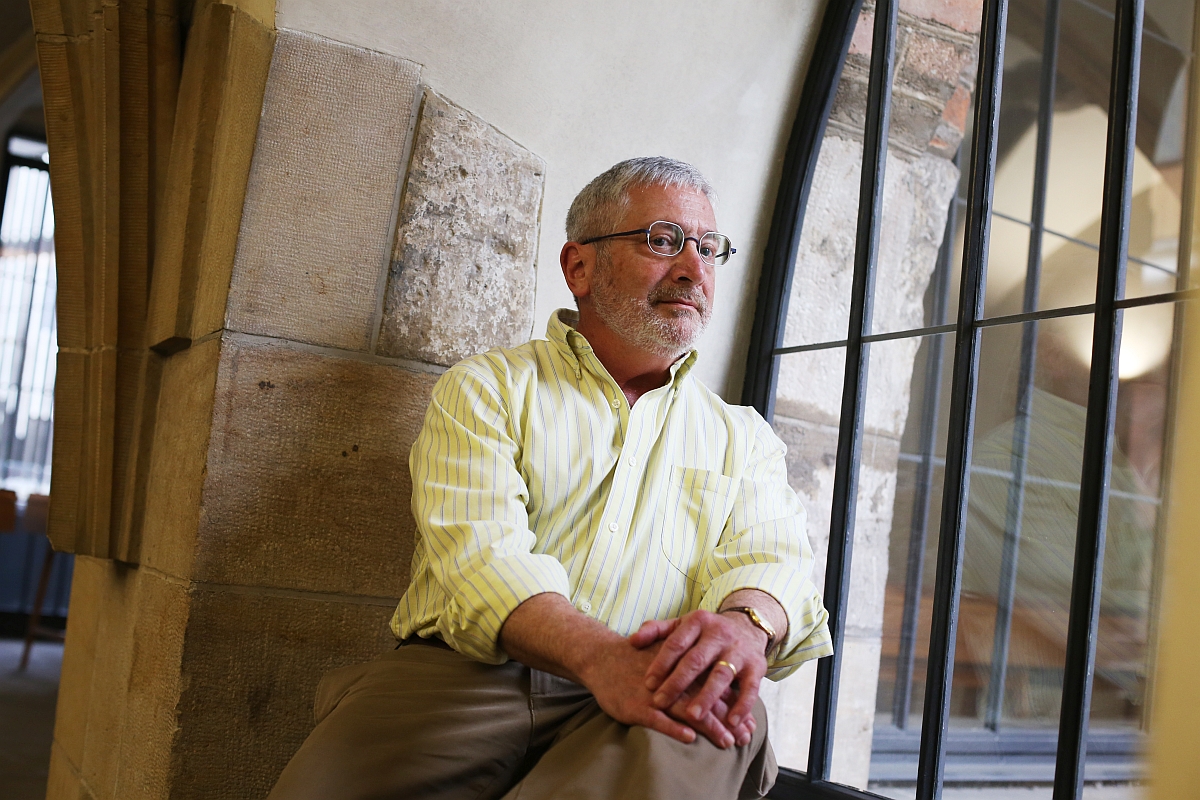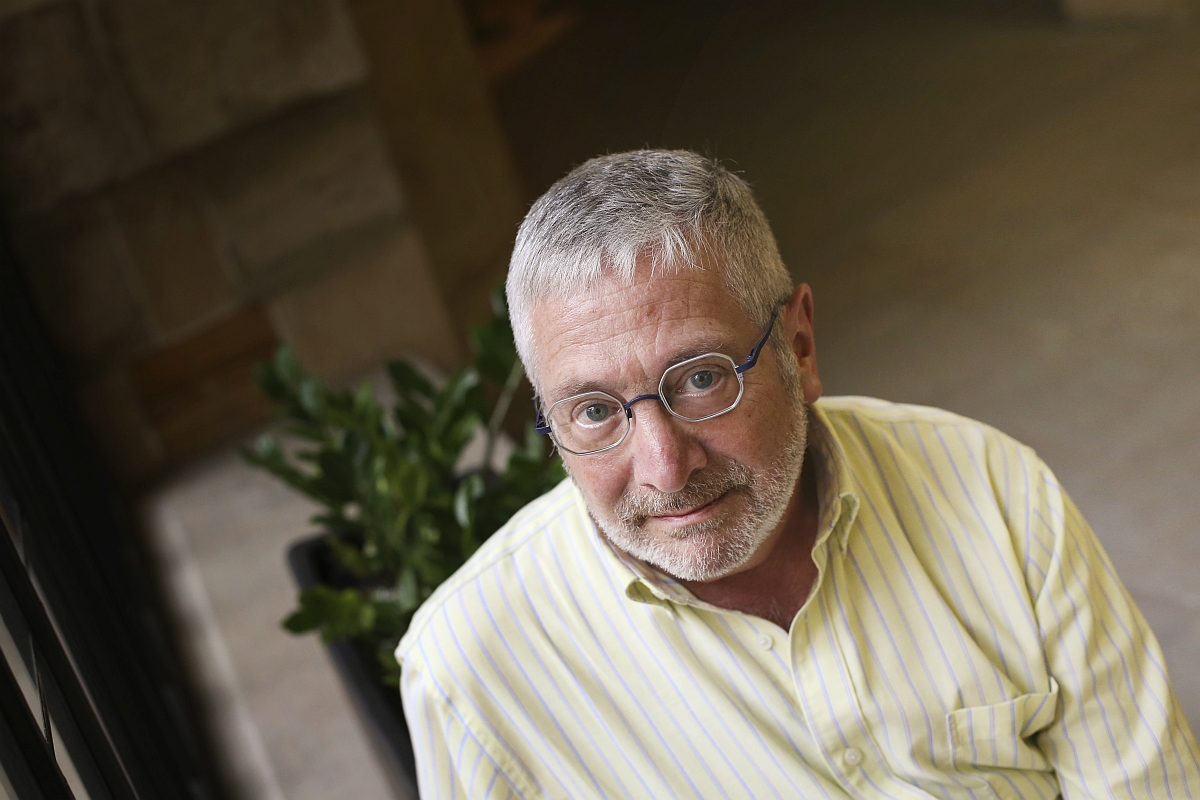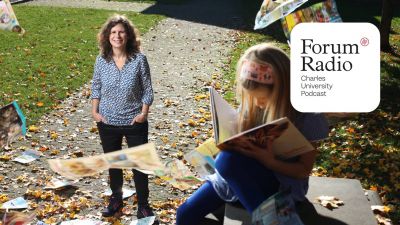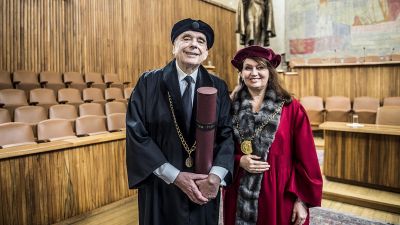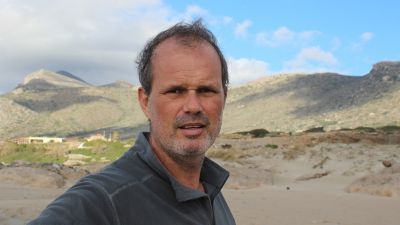Hillel J. Kieval is an historian of Jewish culture who holds the Gloria M. Goldstein Professorship of Jewish History and Thought at Washington University in St. Louis. This semester Kievel, the author of several seminal titles about the history of the Jews in Bohemia and Moravia, taught a course at Charles University based on his most recent work, Blood Inscriptions: Science, Modernity, and Ritual Murder at Europe's Fin de Siecle (University of Pennsylvania Press, 2022).
In our podcast, Professor Kieval talks about some of the factors that influenced modern Czech-Jewish identity, the heinous blood libel accusation from the Middle Ages to the modern era (including the infamous Hilsner trial in Polná which caught the attention of T.G. Masaryk who got deeply involved in defending the accused), and the Czech-Jewish community following the Holocaust.
Excerpts from our interview:
The impact of the Holocaust on Czech Jews
“One observation that people often make is that there is a kind of imbalance between the monuments to Jewish life and the contemporary Jewish demography – the number of Jews who actually live here. The Jewish population in the Czechoslovak republic pre-1939 was around 350,000. Ninety percent of them were murdered during the Second World War, so clearly there is going to be an absence, a lack, after all those voices were lost. But there is a community in the Czech Republic, a vibrant community in Prague of all ages: students, retirees, middle-aged people, there are lectures, synagogue life, learning, and even Jewish studies at Charles University.”
Researching modern Czech-Jewish identity
“I don’t know if my first book was the first modern history of the Jews in the Bohemian lands that insisted on a multilingual, multi-confessional identificational perspective but it was one of the first and I hope that it paved the way for people to not feel that there was only way of looking at Prague Jews or Czech Jews. German language institutions and German language writing and literature were not the only form of Jewish identification. It wasn’t the only form of Jewish identification or way that Jews carved out position for themselves in the modern world… What I tried to argue was that there it was precisely a tension between competing national cultures and national language and pressure in which Czech Jews lived in the last three decades of the 19th and beginning of the 20th century which created what I think you can call a modern Czech-Jewish identity.”
The blood libel accusation through the centuries
“The belief in blood libel as an accusation of ritual murder was fairly widespread in Continental Europe, beginning in the 12th and 13th centuries. But in terms of cases actually being brought to trial, there were ebbs and flows and there was a period of about 200 - 300 years... especially following the Enlightenment and reforms in Jewish judicial procedure, when states refused to get involved in what was largely seen as a superstition. I begin with the paradox [in my book] of the return of the accusation in trials in the late 19th and early 20th century].”
Conspiracy theories
“I don’t think one could have a ritual murder trial in the 21st century – I hope that is true. I don’t think our scientific vocabulary or our worldview can convincingly argue a case like that in a court of law today. In a democratic country. But in places where there is no representation, where confessions can still be extracted under torture, anything goes. Just look at the Slánský trials in Czechoslovakia in the 1950s where the defendants confessed to everything they were accused of. And where the Jewish aspects of the indictments were expressed very explicitly: so-and-so of Jewish descent. That helped to ‘explain’ why [in the public mind] they were ‘guilty’.”
Extremism, intolerance, hate
“When it comes to conspiracy thinking in connection with anti-Semitism, the Jews can never win: they are either the force behind international capitalism and globalism or they are the force behind socialism and left-wing revolutions! There were posters in recent Hungarian elections of George Soros with the line 'Don't let him have the last laugh'. We have seen the rise of white supremacists in the US: at their march in Charlottesville, Virginia, they chanted 'The Jews will not replace us!'”
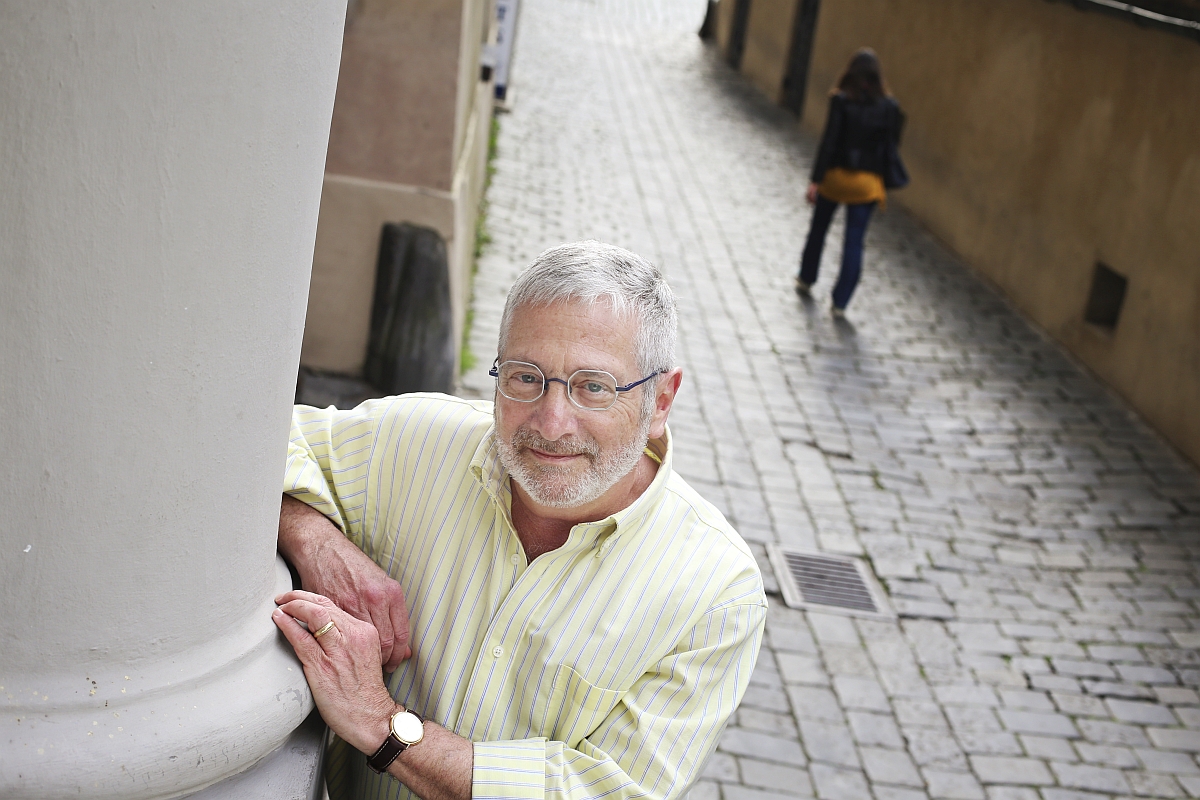
Historian and author Hillel J. Kieval in Prague in the spring of 2022 Not only his course at CU but his public lectures attracted a lot of interest.
| Forum Radio - Interview / Episode 4 / Hillel J. Kieval - Forum Radio: Learning Czech was key to researching Czech-Jewish identity / Runtime: 30 min, 35 sec. |
|
Hillel J. Kieval is the Gloria M. Goldstein Professor of Jewish History and Thought at Washington University in St. Louis. A historian of Jewish culture and society in Central and Eastern Europe in the 19th and 20th centuries, his research interests range widely: from pathways of Jewish acculturation and integration to the impact of nationalism and ethnic conflict on modern Jewish identities; from cross-cultural conflicts and misunderstandings to the discursive practices of modern antisemitism; and from theories of Jewish citizenship to the phenomenology of "ritual murder" trials at the turn of the 20th century. Among his numerous books and articles are The Making of Czech Jewry: National Conflict and Jewish Society in Bohemia, 1870-1918 (1988); Languages of Community: The Jewish Experience in the Czech Lands (2000); and, forthcoming, Blood Inscriptions: Science, Modernity, and Ritual Murder in Fin de Siècle Europe. |


